Premium Only Content
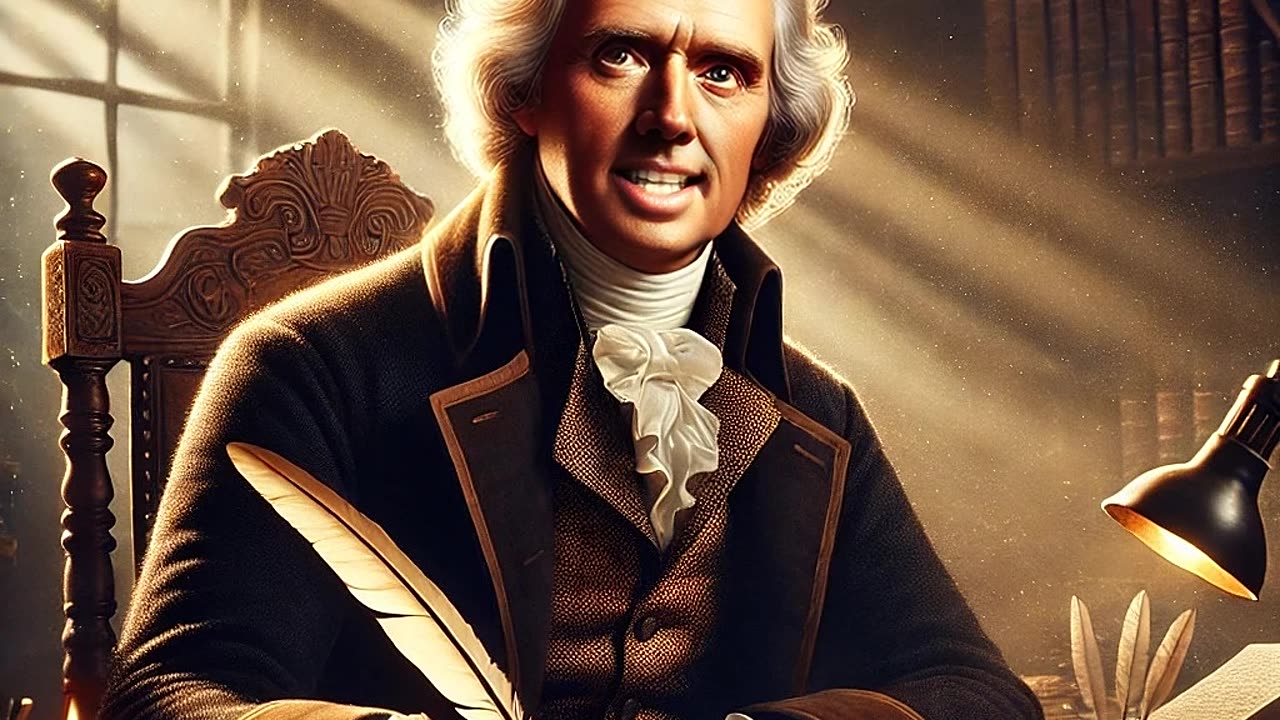
Thomas Jefferson Tells His Story Leading Up to Writing the Declaration of Independence
Presented to you by: http://www.HistoricalConquest.com
Read more on our blog at: https://www.historicalconquest.com/blog
My name is Thomas Jefferson, and though many know me as the third President of the United States, my journey to that point began long before. I was born in 1743 in Shadwell, Virginia, to a family of planters. My father, Peter Jefferson, was a successful landowner and surveyor, and my mother, Jane Randolph, came from one of the most distinguished families in Virginia. From a young age, I was captivated by learning — especially the classics, philosophy, and law.
By the time I was a young man, I had studied at the College of William & Mary, where I immersed myself in a world of ideas and became deeply influenced by the Enlightenment. I read voraciously, always hungry for knowledge, and eventually took up law under the guidance of George Wythe, one of the most esteemed lawyers in Virginia.
In the early 1760s, as tensions between the American colonies and Great Britain began to escalate, I found myself drawn more and more into the political fray. I entered public life as a member of the Virginia House of Burgesses in 1769, where I voiced my discontent with British policies, particularly their attempts to tax us without giving us any representation in Parliament. As I saw it, these taxes were an infringement on the natural rights of the colonists.
I wasn't much of a public speaker, but I expressed my views through writing, which became my greatest weapon. In 1774, I penned A Summary View of the Rights of British America, a pamphlet that laid out the colonies' grievances against King George III and declared that we had the right to govern ourselves. This document caught the attention of other colonial leaders, and it wasn’t long before my reputation as a strong advocate for independence grew.
By 1775, I was a delegate to the Second Continental Congress, representing Virginia. It was clear by this time that we were on the brink of war with Great Britain. The Battles of Lexington and Concord had already been fought, and we needed to make a decision: Were we going to continue to seek reconciliation with Britain, or was it time to declare our independence?
In June of 1776, the Continental Congress appointed a committee to draft a declaration — one that would formally announce our break from Great Britain. I was chosen, along with John Adams, Benjamin Franklin, Roger Sherman, and Robert Livingston, to be part of that committee. Though I was the youngest member, it fell upon me to write the first draft.
I shut myself away in my quarters for several days, drawing on all the ideas I had studied over the years — natural rights, government by consent of the governed, the abuses of King George III — and poured them onto the page. I wrote that "all men are created equal," and that they are "endowed by their Creator with certain unalienable Rights," including "Life, Liberty, and the pursuit of Happiness." These were the principles that would serve as the foundation of a new nation, a nation unlike any other.
After presenting my draft to the committee, it underwent revisions — particularly at the hands of Adams and Franklin. The Congress as a whole debated it, making changes here and there. While it was not exactly as I had written it, the core message remained: we were declaring our independence from Britain.
On July 4, 1776, the Declaration of Independence was adopted by the Continental Congress, and with that, we took a monumental step toward the birth of the United States of America. I may have written the words, but it was the courage and determination of all those who fought and sacrificed that made our independence possible.
Looking back, those were the defining moments of my life up to that point — from a young man steeped in the love of learning to a revolutionary advocating for freedom. The Declaration of Independence would go on to be my most enduring legacy, a testament to the idea that governments are created to protect the rights of the people, and when they fail to do so, the people have the right to change or abolish them.
The road ahead would be filled with challenges, but in those moments of 1776, I was confident that we were embarking on the great and noble cause of liberty.
Visit us at: https://www.historicalconquest.com/marketplace
#historicalconquest #history #historical #ancientamerica #ageofexploration #france #french #iroquois #native #nativeamerican #nativeamericanhistory #british #england #religiouspersecution #expansion #truehistory #settlers #settlement #spain #france #French #Frenchhistory #frenchcolonial #frenchheritage #colonizers #colonizer #FrenchandIndianWar #RevolutionaryWar #AmericanRevolution
-
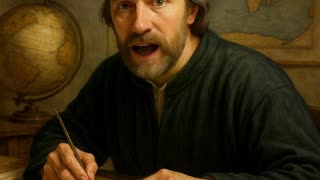 1:00
1:00
The Historical Conquest Channel
5 days agoMartin Waldseemuller Tells His Story of Hearing About Amerigo Vespucci and Designing his Map
9 -
 2:40:10
2:40:10
DLDAfterDark
5 hours ago $0.11 earnedDLD Live! Feat. Red Dawn Readiness! Glock FRT's - Striker Fire Safety Concerns - ACE Trigger
11.4K1 -
 2:40:21
2:40:21
BlackDiamondGunsandGear
4 hours agoAre ALL Striker Fired Pistols UNSAFE? // After Hours Armory
27K4 -
 6:34:50
6:34:50
SpartakusLIVE
8 hours ago#1 Saturday Spartoons on RUMBLE PREMIUM
102K6 -
 1:04:59
1:04:59
Man in America
9 hours ago“Summoning the Demon” — The AI Agenda Is FAR WORSE Than We Know w/ Kay Rubacek
34.7K21 -
 2:16:48
2:16:48
Tundra Tactical
7 hours ago $0.07 earned🎯💥 The World’s Okayest Gun Show 🔫😂 | LIVE Tonight on Rumble!
20.2K -
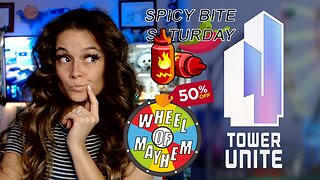 3:36:03
3:36:03
Mally_Mouse
1 day ago🌶️ 🥵Spicy BITE Saturday!! 🥵🌶️- Let's Play: Tower Unite!
43.6K2 -
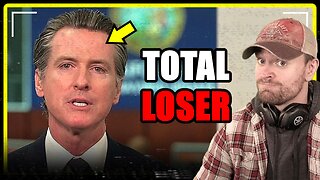 58:59
58:59
MattMorseTV
7 hours ago $1.27 earned🔴Trump just BROKE Newsom.🔴
59.9K69 -
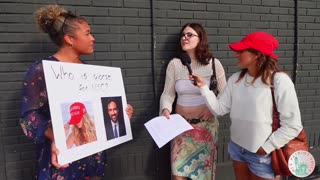 18:14
18:14
Her Patriot Voice
7 hours agoWho Is WORSE for NYC: Trump Girl or Socialist?
39.6K31 -
 3:39:42
3:39:42
SavageJayGatsby
7 hours agoSpicy Saturday with Mally! | Road to 100 | $300 Weekly Goal for Spicy Bites!
41.5K1